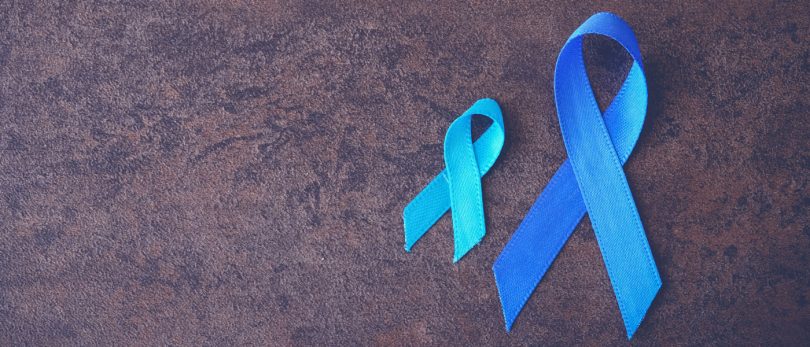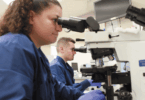Colorectal cancer will affect about 4 percent of American women and 4.5 percent of American men at some point in their life. However, due to increased screenings and improvements in treatment, the number of Americans who die from colorectal cancer has decreased steadily over the last few decades, according to the American Cancer Society.
To mark National Colon Cancer Awareness Month, which takes place every year in March, Amine Hila, MD, gastroenterologist affiliated with UHS Hospitals and UHS Chenango Memorial Hospital & Director, Department of Medicine at UHS Hospitals, explained some of the dangers and myths surrounding colorectal cancer and screenings.
3 Simple Steps
We asked Amine Hila, MD, gastroenterologist at UHS, how people can reduce their risk of colon cancer? Dr. Hila says there are three simple ways to improve and stay on top of your colon health:
1. Eat healthy.
2. Don’t smoke.
3. Get screened.
“Family history, particularly if there is a first or second degree relative with history of colon cancer, significantly increases the risk of cancer,” says Dr. Hila. “Smoking and eating a low-fiber diet consisting of a lot of red meat can increase your risk as well.” However, Dr. Hila says that even if you don’t have these risk factors in your life, everyone is susceptible to colon cancer, and physicians generally recommend colon screenings beginning at age 50.
For many people, colon screening comes with preconceptions about the procedure, or even stigmas attached to it. The biggest fear people have with colonoscopies, says Dr. Hila, is the preparation.
“We have preps that are much, much gentler now,” he says, particularly compared to what some have experienced in the past. “It’s a lot more tolerable; patients experience much less discomfort associated with the preparation.” And for the actual procedure, patients are sedated. “People are asleep throughout the entire process, so they feel no pain,” says Dr. Hila.
In addition, people at average or low risk for colon cancer may have another option. “If you’re very apprehensive about getting a colonoscopy, there is another test available called Cologuard,” says Dr. Hila. “This is a non-invasive, at-home screening method that can put patients at ease with their fears of colonoscopies.” However, Cologuard is not as effective as colonoscopy, which is why it is generally used for lower-risk patients.
MORE INFO
For more information about cancer treatment at UHS, visit nyuhs.org.







